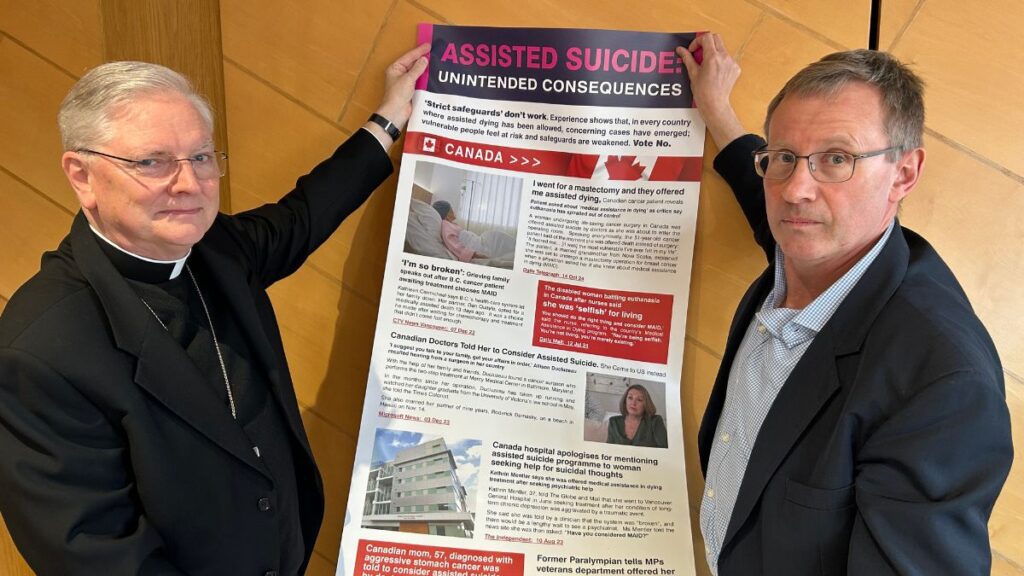Let Peers know you oppose assisted suicide
Kim Leadbeater’s Terminally Ill Adults (End of Life) Bill will be debated in the House of Lords in early Autumn.
The Bill, which narrowly passed through the House of Commons by 314-291 votes, is expected to return to Parliament on 12 September 2025, with further scrutiny and debate in the days which follow.
If it is to become law, the Bill must be supported by the Lords.
The House of Lords would normally be expected to support a Bill where there is a solid majority in the Commons.
However, because the Commons majority for this Bill is just 23 votes and, crucially, the Bill is not a Government Bill, it is still possible that the Lords could reject it.
What to do
This document lists Peers from Scotland with contact email addresses.
You can find at least one who has a connection to your area (their former constituency is listed in the third column) and either write to them or send them an email.
Some Peers use a generic ‘contactholmember@parliament.uk’ address so remember to state in the subject line which Peer the correspondence is for.
You can also write to a Peer using the following address:
[Insert Name of Peer e.g. Rt Hon Lord/Baroness….], House of Lords, London, SW1A 0PW
Anthony Horan, of the Catholic Parliamentary Office, said: "Whilst emails are easier, written correspondence is much more effective as it is more likely to be noticed by politicians.
"Whichever method of communication you choose, please remember to be respectful and courteous, and please remember to include your postal address."
He added: "There are many defects in the Leadbeater Bill and this excellent Care Not Killing resource lists 26 of them.
"You can also check out this excellent briefing by SPUC and use these resources to formulate your letter/email. Please also remember to share your own concerns and personal stories.
"Thank you for your continued support on this very important issue."
